The leading cosmological model states that the universe was born about 13.7 billion years ago in the Big Bang. But what was he really like? Incredibly huge or tiny? Deafeningly loud or shrouded in silence? And most importantly, where exactly did it happen, if there was nothing around at all? There are so many questions that some researchers believe that the explosion could have been repeated several times, which means even the name is incorrect. It turns out to be a rather strange picture – everyone knows about the Big Bang, but no one can say with certainty what it was like. Ultimately, to talk about the beginning of time, you need to choose not only the right words, but also the right physics. Thus, the discoveries of recent years have allowed us to form a more or less clear idea of the Universe, but trying to look further into the past, we are increasingly turning to the physics of elementary particles. This means that to learn more about cosmic childhood and the mysterious Big Bang, physicists must use high-energy physics concepts that go beyond experimental results.
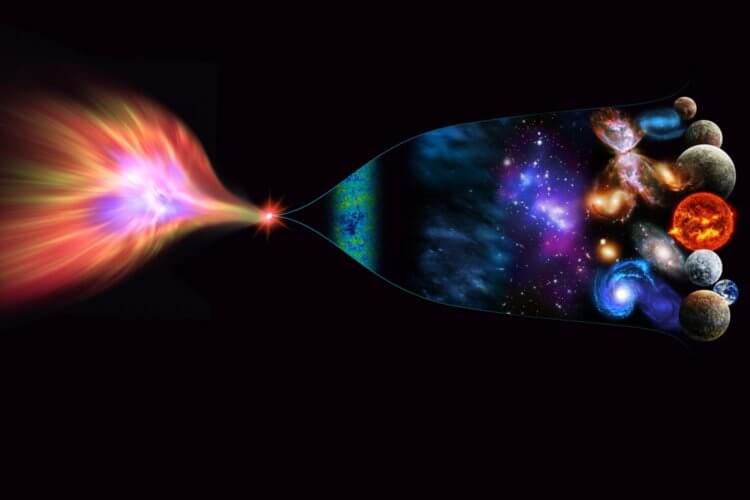
The universe was born as a result of the Big Bang. But what happened before it? Image: techquila.co.in
What happened in the beginning?
The quest to understand the origins of the universe has moved from myths and legends to the quantitative insights of modern cosmology based on general relativity and its implications for understanding the structure of the cosmos. Key discoveries such as the expansion of the Universe (which we learned from the observations of American astronomer Edwin Hubble) and the successful construction of the Big Bang theory formed the basis of our understanding of the cosmos. But despite significant progress, the earliest moments and fundamental cause of the universe are still shrouded in mystery.
At the same time, the question «what happened before the Big Bang» always arises when someone thinks about the origin of the Universe. After all, if there is no «before» it wasn’t, then what was the reason? Amazingly, just a few centuries ago the answer was simple: some eternal deity set everything in motion. Even Sir Isaac Newton believed that God created the universe about 6,000 years ago.
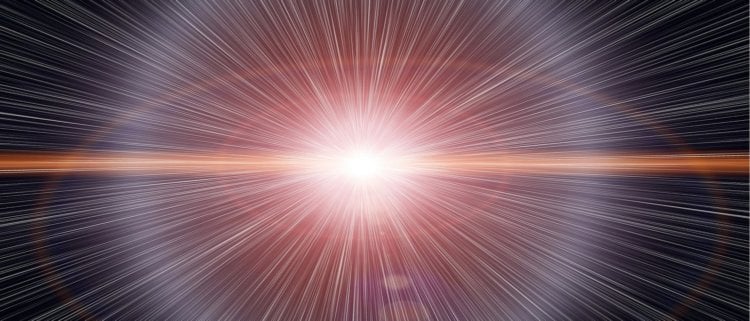
The Big Bang was the beginning of everything. But was there something before it?
Image: squarespace-cdn.com
Read also: Scientists believe there were two Big Bangs
Everything changed with the discovery of cosmic expansion, when the Belgian cosmologist (and Jesuit priest) Georges Lemaitre realized that the universe must have had a beginning. True, few people liked this idea, and in the early 1960s, Fred Hoyle's steady state theory was quite popular among both iconoclastic scientists and lay people.
Steady State Theory
Hoyle and his colleagues accepted the expansion of the Universe, but did not believe in the Big Bang, believing that the slow, continuous formation of new matter could keep the average density and general properties of the Universe constant over time.
According to the steady-state model, matter is continuously created as the universe expands, but over time Hoyle's theory was supplanted by the Big Bang idea, which states that the density of matter in the universe falls as galaxies move away from each other. The final rejection of Hoyle's idea by the scientific community took place in 1964 after the discovery of cosmic microwave background radiation (cosmic microwave background radiation).
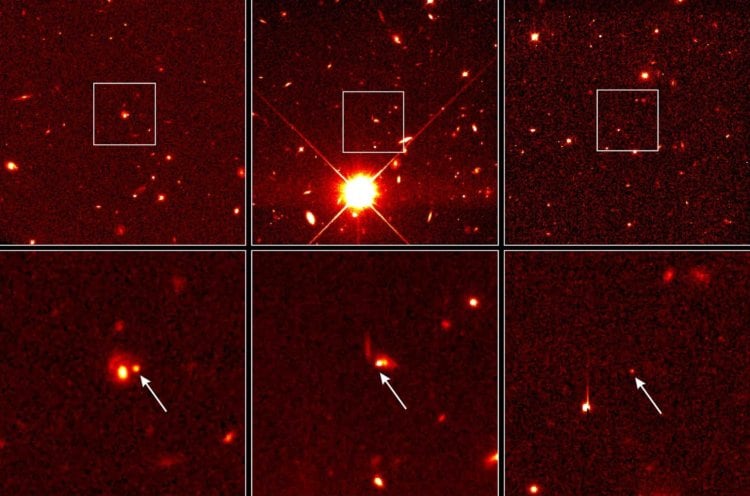
The steady-state model of the Universe was developed in 1948 by Fred Hoyle, Thomas Gold, Hermann Bondi and others as an alternative to the Big Bang theory. According to this model, as the Universe expands, new matter is constantly created between the expanding galaxies. Image: cdn.britannica.com
Do you want to always be aware of the latest news from the world of science and high technology? Subscribe to our channel on Telegram – so you definitely won’t miss anything interesting!
Since then, the amount of supporting evidence for the origin of our Universe from the Big Bang has reached such an extent that there is little doubt left. True, the question of what came before him still has no answer, and many scientists prefer not to notice this question, since it seems that we will never know the answer to it.
The Beginning of Time
Note that when astronomers talk about the Big Bang, they usually mean not the very beginning of the Universe (time zero), but the incredibly hot and compact state of the Universe in the first couple of minutes of its existence. To some extent, this is due to the fact that no one has the slightest idea about the true nature of time, let alone its beginning.
British physicist Julian Barbour, for example, argued that time does not exist at all, except as an illusion in our minds. According to others (including Stephen Hawking), time arose along with the Universe, which makes the very concept of «before» meaningless. Asking what happened before the Big Bang is like asking what is north of the North Pole or what distance is less than zero.
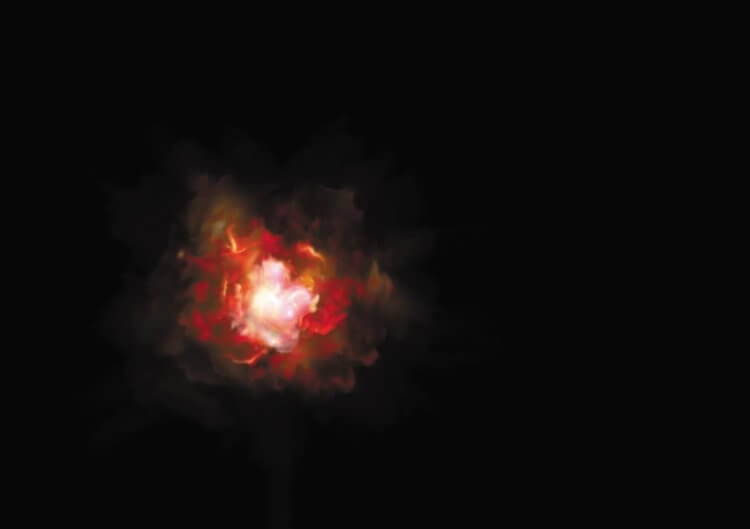
We will probably never know what happened before the Big Bang. Image: static.scientificamerican.com
On the other hand, we simply don't know whether there was time before the Big Bang or not. According to the once popular idea of a cyclical universe, the current expansion of space may one day turn into contraction– A big bang that could develop into a new Big Bang and begin the next cycle of the eternal sequence.
This is interesting: Scientists are creating the most detailed map of matter in the Universe. Why is this important?
Of course, this is just one of many hypotheses according to which our Universe is not unique, but, one way or another, is part of a possibly infinite multiverse. But if the multiverse is also infinite in time, then we return to the idea that everything has existed forever, which means the question of what happened before the Big Bang simply becomes meaningless.
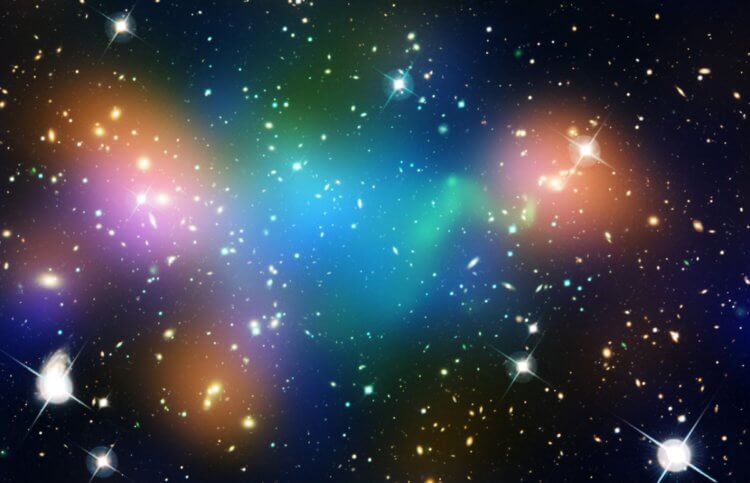
Perhaps the question of what happened before the Big Bang makes no sense. Image: d.newsweek.com
Finally, South African physicist Neil Turok believes that the Big Bang gave birth not only to our Universe, but also to the Antiverse, consisting of antimatter and moving backward in time. Again, an intriguing idea, but there is no chance of confirmation (or refutation!) through observation.
You might be interested: “Everything everywhere at once” from a scientific point of view: what could a multiverse be like?< /p>
Ultimately, we seem to have to admit that we know nothing about the true beginning of the Universe. And even if we are inclined to the idea of an eternal multiverse, which has no real beginning at all, we do not know why there is something (or, moreover, why everything exists) rather than nothing.